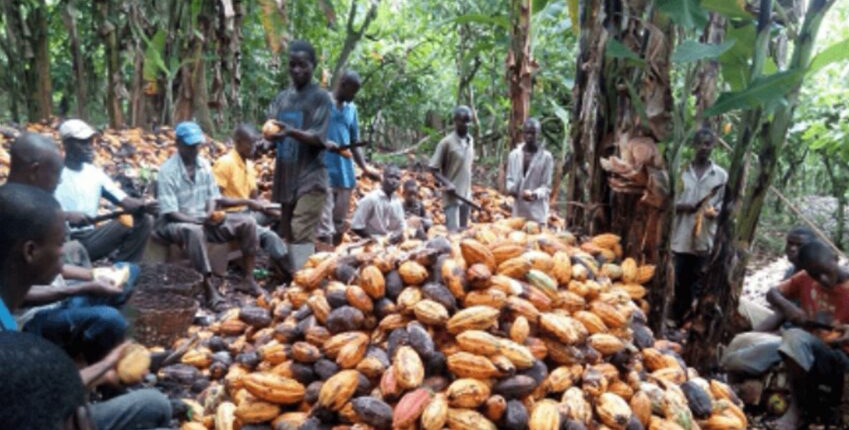
Cocoa production
FG to boost cocoa production to 500,000 metric tonnes by 2025
The Federal Government of Nigeria has unveiled plans to increase cocoa production to 500,000 metric tonnes by 2025, up from the 340,000 tonnes recorded in 2022.
Ambassador Nura Rimi, Permanent Secretary of the Federal Ministry of Industry, Trade, and Investments, disclosed this during the Pre-National Trade Dialogue Series meeting in Abuja.
The event, tagged, “The State of Nigeria’s Global Trade Ecosystem: Bridging the Gaps for a Renewed Programme,” highlighted the strategic importance of cocoa to Nigeria’s economic development.
Acoording to Mr Kaura Irmiya, who represented Rimi, the Ministry’s Director of Commodities and Export, Nigeria’s position as the world’s sixth-largest cocoa producer and outlined the government’s plans to enhance production and revenue.
He said, “Our cocoa exports saw a 50% revenue increase in 2022. We aim to boost production to 500,000 metric tonnes by 2025, with investment partnerships driving growth across various sectors.”
He also highlighted the strategic partnerships with international organizations such as the International Cocoa Organization (ICCO) and the African Cocoa Fund in achieving the goals.
Rimi also stressed the significant improvements in Nigeria’s investment landscape, attracting over $2 billion in Foreign Direct Investment (FDI) in 2023.
According to him, the influx has notably benefited sectors like manufacturing, agriculture, and energy, aided by government initiatives designed to create a conducive business environment.
Among the initiatives mentioned were the establishment of free trade zones, simplified business registration processes, and investor incentives.
However, Rimi acknowledged ongoing challenges, including infrastructure deficits, regulatory bottlenecks, and corruption, which he said must be addressed to fully realize Nigeria’s investment potential.
He added that security concerns in certain regions were also a deterrent to investment and economic growth.
“As we look to the future, we must build on our progress. Attracting investments, promoting trade, and strengthening partnerships are crucial.
“We must also address challenges and foster a more conducive business environment,” Rimi noted.
Rimi stressed the need to promote innovation, entrepreneurship, and skills development to ensure sustainable and mutually beneficial partnerships.
He emphasized that Nigeria’s investment and collaboration partnerships could drive growth, create jobs, and improve living standards.
Ambassador Fred Agah, Director-General of the Nigerian Office for Trade Negotiations, emphasized the government’s crucial role in boosting trade.
Agah recommended that the government create policies to reduce private sector risks and ensure a conducive business environment, emphasizing the need for collective effort to achieve set goals.
The Pre-National Trade Dialogue Series meeting was attended by government officials, stakeholders, and investors in the sector.
